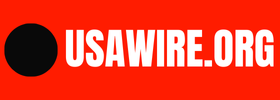[ad_1]

A Canadian national who lives in China pleaded guilty on Thursday to conspiring to sell secrets he stole from Tesla to market battery assembly technology vital to electric vehicles, authorities say. He was caught in a sting operation after undercover agents posed as Long Island businesspeople looking to buy an assembly line at a trade show in Las Vegas.
Klaus Pflugbeil, 58, is now facing a maximum penalty of 10 years in prison and he’ll be sentenced in October. His co-defendant, Yilong Shao, is still at large. Prosecutors said Pflugbeil and Shao were employees of a Canada-based manufacturing company that made and sold battery assembly lines for clients that needed alkaline and lithium-ion batteries. The Canada manufacturing firm was purchased by a company—identified in reports as Tesla—which gave the Elon Musk-led electric vehicle maker a leg up in continuous motion battery manufacturing.

“Despite Pflugbeil’s agreement to protect what he knew was proprietary, sensitive technology, he chose to abscond with these trade secrets to China, where he sought an unfair and illegal advantage in critical industries such as electric vehicle manufacturing,” assistant attorney general Matthew Olsen of the Justice Department’s National Security Division said in a statement. The conduct jeopardized national security, said Olsen.
The assembly lines allow manufacturers to run battery production at high speeds without pausing and can produce five to 10 times more parts per minute than competitors that don’t have access to it, court documents state. Between 2004 and 2017, Tesla spent about $13 million on research and development to bring the battery technology to life.
Because it was top secret and valuable to competitors, information about the battery assembly such as drawings and diagrams were stored on one particular server under the direct control of a dedicated in-house IT team. Few employees had access to the drive with the battery assembly information, the indictment states, and Pflugbeil was one of them, authorities said. He worked for the Canadian manufacturer for 12 years from January 1997 to June 2009, including two years as the head of its office in China. Around the time Tesla bought the Canadian manufacturing firm, Shao sent Pflugbeil a proposal about setting up a business together, the court docs say.
Pflugbeil and Shao knew the continuous motion battery assembly information was secret and that Pflugbeil took original company documents when he left in 2009, according to the DOJ. The duo set about copying the documents and drawings from the battery manufacturer and marketing their business as an alternative source for products that rely on the battery assembly.
Between 2019 and 2022, authorities say Pflugbeil sent dozens of direct messages on LinkedIn claiming to sell spare parts and precision pumps. Pflugbeil also set up a YouTube account for the business and when a commenter on a video inquired about the assembly, Pflugbeil responded that his new company provided direct sales and technical support for the pumps and assembly pieces. The duo also bought ads on Google for its business, which were shown tens of thousands of times, authorities said.
The two were caught when in 2023, undercover law enforcement agents went to a trade show in Las Vegas and posed as Long Island business owners interested in buying a battery assembly line. Pflugbeil wasn’t there but Shao was and said the company was interested. Pflugbeil later sent a 66-page document to undercover agents, the indictment says, with at least half a dozen drawings that belonged to Tesla.
Pflugbeil flew to New York in 2024 to seal what he thought was a deal to sell an assembly line, but instead he met with undercover agents in Long Island.
“This blatant theft of advanced trade secrets relating to battery components and assembly blunts America’s technological edge, and the Justice Department will hold accountable those who would so try cheat our country of its economic potential and threaten our national security,” said Olsen.
[ad_2]
Source link

